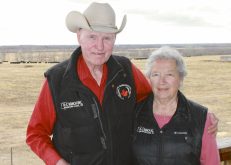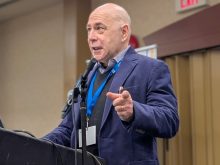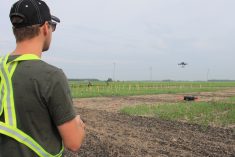An intergenerational farm transition is never easy. There are tough conversations, there are disagreements, and, always, there is compromise.
The kids who want to take over the farm worry about when, if ever, that’s going to happen. They want to know how they are going to get there and what their parents are going to expect before letting them take the reins.
It feels like Mom and Dad are already looking at them differently, evaluating their potential as leaders and partners of a business that has grown bigger than they ever imagined. They can see their parents asking: are any of these kids a safe bet for taking over an operation this big and complex?
Read Also

Farm families gain clarity from financial transparency
On family farms, especially multi-generational operations, being open about finances isn’t just good practice — it’s essential for business survival and harmonious relationships, Alyssa Brown writes.
Conscious of all this, the kids may make the wrong choice. To be honest, any of us might. They feel they’ve got to show off what they know, and they get the idea they need to exude a bright confidence even if, or especially if, they don’t feel it.
By contrast, the qualities the parents are actually looking for are almost the opposite. They want to see humility, a respect for how much they’ve got to learn and a kind of conscientiousness self-appraisal, and they also want to see the next generation can adapt, grow, handle stress and build relationships on and off the farm.
So it’s no surprise if there’s one thing that will make or break most intergenerational farm transitions, it’s communication.

Make it clear what you want
Kelly Dobson, founder of LeaderShift, says the transition process should start with a frank discussion about what everyone wants and expects.
“For the younger generation, especially, it’s important for them to be clear about what they want… a clear declaration that they want to go on farming and want to take over the farm,” Dobson says.
That might seem obvious, but Dobson, who developed and teaches the National Farm Leadership Program, says there are plenty of farms where the kids say they want to farm but what they actually want isn’t to take over, it’s just a job and an income.
“So, when it gets right down to it,” Dobson says, “they are just a high-dollar employee who often has an equity stake, but they are not making any of the marketing or financial decisions.”
READ MORE: Is my kid a leader?
If the farm is looking for a leader, by contrast, it has to see a hunger for it, Dobson says.
“Showing an interest in learning and expressing that they are willing to take on all of it, not just some of it, are going to be absolutely required for them to assume leadership.”
Is what you want possible?
In its turn, the older generation must be just as clear. Will they even consider turning the farm’s leadership over to the child who’s asking for it?
“The younger generation needs to know whether there is ever going to be an opportunity,” Dobson says. “But they also have to understand that their parents are not required to give them a job or obligated to let them take over the farm, and there may be reasons why it won’t be possible.”
These are tough conversations, but they need to happen sooner than later. “Unfortunately,” says Dobson, “these are often the ones that go unsaid.”
Assuming both generations are aligned at least in their basic ideas about the future of the farm, it’s time for the conversations about what the transition will look like and how they are going to make it happen.
“The younger generation needs to ask, again very clearly, what are the conditions in which that might happen? What would you expect of me? What are the expectations that you’d be willing to do this over time?” Dobson says.
What are they really looking for?
It’s impossible for kids to see themselves through their parents’ eyes, but any window into what the parents might be looking for is useful.
Craig Lehr, a third-generation rancher from Medicine Hat who has enrolled in Dobson’s National Farm Leadership Program says he already knows what he’ll be looking for when his young children get old enough.
“To me, a partner in the operation is somebody who’s in love with farming and agriculture and wants to be here,” Lehr says. “Our operation has a cow-calf side, a feedlot and farming operations, so we are quite diverse. There is room for someone to focus on their special area of interest or expertise, but the whole farm runs as one integrated operation. So, while they can focus on a particular area, they also have to learn about every side of the operation so they look at it with a holistic viewpoint.”
Lehr runs the operation with his dad, Randy, uncle, Ken, and brother, Scott (whose children are older and already help out on the farm), and they all maintain a focus on continuous learning and sharing the same goals and vision.
“We might ask them to come to the next farm meeting with information on genetics or new crop varieties or better irrigating technologies,” Lehr says. “It’s about encouraging the kind of leadership that is based on the desire to make things better and keep the farm growing. We’re always trying to move forward no matter how small a step, so it’s a commitment to moving forward that we want to see.”
















